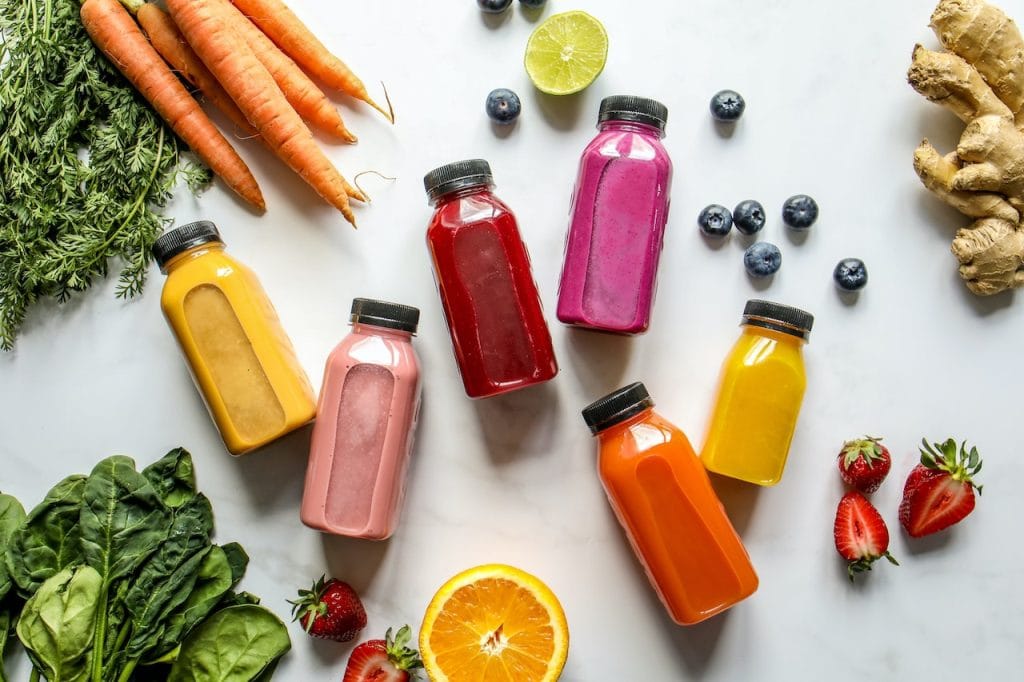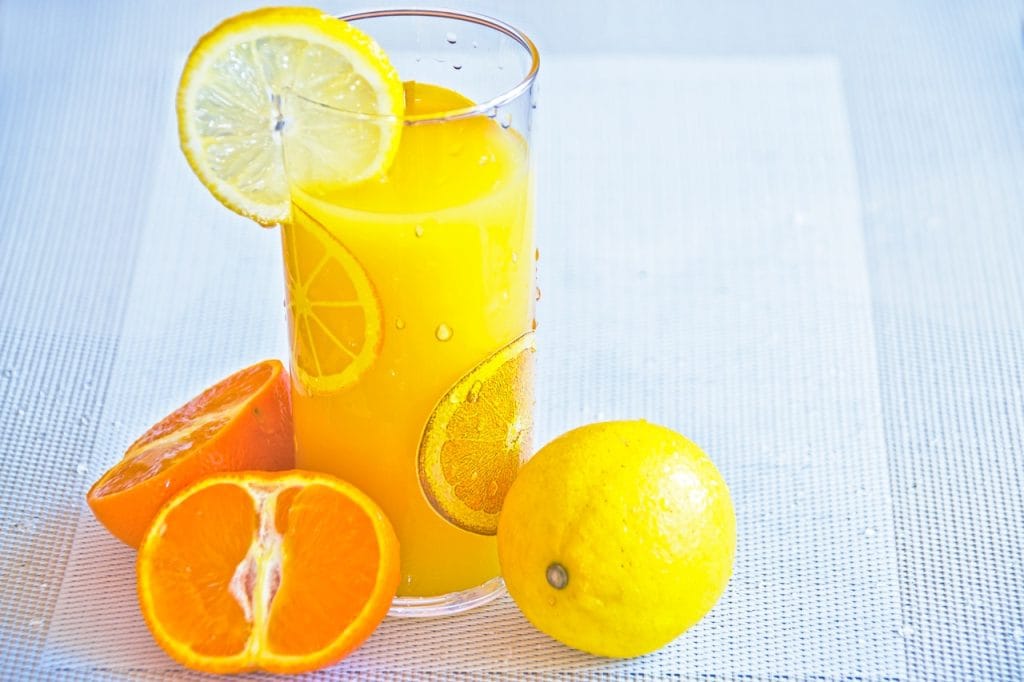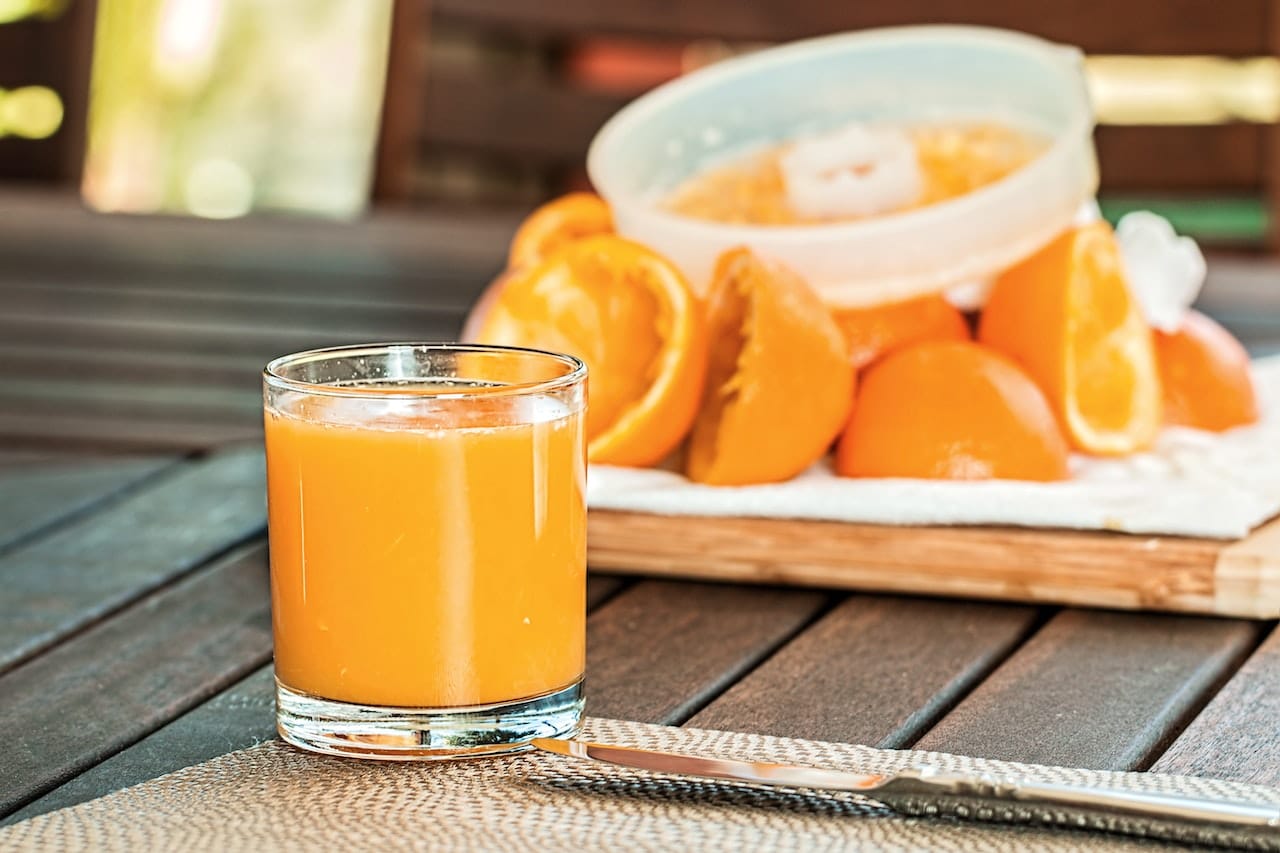There is an opinion that due to the high sugar content, juices are not only not healthy, but can even cause the same harm to health as carbonated drinks. We decided to check if this is true.
The fact that regular consumption of juices harms the human body no less than soda was reported in both the news media (for example, the TV channel "World" and radio "Komsomolskaya Pravda") and glossy publications ("Rules of life", Men's Life, Elle, Marie Claire etc.). Such information can be found on popular science And entertaining portals, as well as on resources dedicated to drinks, nutrition And healthy lifestyle generally. They're trying figure out in a situation sites, specializing in quality control of goods and services. Internet users also are interestedWhich is more harmful - soda or juice?
Most of the complaints about fruit juices are their high sugar content. According to the US Department of Agriculture, in a glass orange 250 ml of juice contains 20 g of sugar, grapefruit — 22 g, apple And pineapple - about 25 g, pomegranate — 31 g. Moreover, hereinafter we are talking only about 100 percent juices, and not about fruit drinks or drinks with the taste or aroma of fruit. Vegetable juices are “more harmless” in terms of sugar content: for example, in a glass carrot And tomato juice is only 9 g and 6 g, respectively. For comparison, in a glass coca cola contains about 26 g of sugar, about the same as popular types of fruit juice, so their comparison with sweet soda makes sense. In terms of calorie content, these drinks are also approximately the same: 100 ml of Coca-Cola contains 42 kcal, and the same volume of popular juices contains from 39 to 53 kcal.
At the same time, WHO strongly recommends An adult should consume no more than 50 g of sugar per day - this is approximately 200 kcal, which is 10% of the recommended daily intake of 2000 kcal. And better, WHO experts note, even less - about 25 g. It turns out that just one glass of juice “covers” half of the daily maximum sugar intake recommended by WHO. Experts from the American Heart Association are even stricter on this issue: they advise Men should stick to a maximum of 36 g and women should stick to a maximum of 25 g of sugar per day. That is, one glass of, for example, pomegranate juice for women is already too much (and this does not take into account the sugar that people get from other foods). Harvard Medical School specialists offer limit the consumption of fruit juices to 120-180 ml per day - precisely because of their high sugar content.

Excessive sugar consumption can cause many problems health problems - for example, excess weight (which can lead to cardiovascular disease and even cancer) and tooth decay. "Verified" already wrote that sugar, according to a number of studies, can cause addiction. In addition to the fact that it itself can cause excess weight, “liquid“Carbohydrates, which include juices, also do not give the same feeling of fullness as “solid” ones. This, in turn, can affect weight, because without feeling full, a person can significantly exceed his calorie allowance.
The type of sugar a person consumes also matters. Highlight three types simple sugars: glucose, fructose and galactose. Fructose is found in many fruits and vegetables, as well as in their juices. Unlike glucose, which can be converted into energy by almost every cell in our body, fructose processed only in the liver. One of the end products of this process is triglyceride, a form of fat that can negatively affect liver function and also contribute to the growth of plaque in the arteries. Also, when fructose is processed, free radicals are formed that can destroy body cells. Another side effect is increased insulin resistance, which can lead to diabetes. US National Institutes of Health recommends Avoid excessive consumption of fructose for the same reasons.
However, there are other opinions. For example, experts from the US National Academy of Sports Medicine claimthat nothing terrible happens to our body when processing fructose, since less than 1% of consumed sugar is converted into the same triglyceride. In their opinion, if you eat less than 80 g of fructose per day, there will be no dangerous health consequences. Although, we note, this is at odds with the recommendations of the WHO and other authoritative organizations regarding sugar in general. Currently existing research about the effect of fructose on human health as well do not confirmthat consuming this type of sugar within the WHO recommended limits can cause some serious harm.
It is often claimed that, unlike carbonated drinks, juice contains some vitamins and fiber that are beneficial to the human body. On the one hand, daily fiber norm for an adult - 25-30 g per day, while a glass of orange juice contains only 0.7 g, apple juice - 0.5 g. On the other hand, with vitamins the situation is much better: for example, with a daily normal vitamin C level 75-90 mg in a glass of orange juice contains 71 mg of this substance, apple juice - 95 mg. The same volume of orange juice contains 139 mg of calcium per day. normal 700 mg, and in the case of pomegranate juice - about 500 mg of potassium (norm - 2600 mg for women and 3400 mg for men). Moreover, this juice contains useful antioxidants. Of course, sweet soda does not contain such beneficial nutrients.

Research on the effects of fruit juices specifically (and not sugar-sweetened drinks in general) on human health is currently very limited. However, in 2019, American scientists conducted data analysis, obtained from the Causes of Geographic and Racial Disparities in Stroke study, which included more than 30,000 Americans. The scientists sampled about 13,000 people over 45 years of age, excluding those with a history of coronary heart disease, diabetes or stroke, as well as those for whom dietary data were not available. In the analysis, the researchers found that each additional 350 ml serving of fruit juice per day was associated with a 24% increased risk of death from any cause, and each additional serving of the same volume of drinks with added sugar was associated with an 11% increased risk of death from any cause. However, scientists emphasize that their work has a number of limitations, and additional research is required to clarify the relationship between juice consumption and an increased risk of mortality.
In addition, packaged juices, sold in abundance in stores, may contain very unexpected and completely unhealthy substances. For example, in 2019, experts from the independent American magazine Consumer Reports, which specializes in assessing the quality of goods and services, tested 45 popular fruit juices. Almost half of them were found to contain poisonous arsenic, cadmium and lead in quantities potentially hazardous to health.
In general, nutritionists recommend give preference to whole fruits - they contain fiber beneficial to the body, they do not contain vitamins are degrading, unlike juices. In addition, freshly squeezed juice cannot be stored for a long time - bacteria begin to multiply in it. Specialists advise consume at least 400 g of various vegetables and fruits per day, and only about 20% of this volume can be replaced with juices.
Thus, fruit juices are indeed comparable to soda in some respects: they contain a large amount of sugar (which means they carry the same health risks) and about the same number of calories (which can affect weight). At the same time, they contain vitamins, antioxidants and other beneficial substances that are not found in soda. Nutritionists recommend choosing fresh fruits over fruit juices, but when choosing between soda and juice, it will be healthier to choose juice.
Cover photo: stevepb
Half-truth
Read on the topic:
- Is it true that sugar-free soda is a healthier alternative to regular soda?
- Is it true that instead of Coca-Cola, they will start selling consecrated kvass with cola flavor in Russia?
- Is it true that fireweed is healthier than Coca-Cola?
- Is it true that drinking during meals is bad for digestion?
If you find a spelling or grammatical error, please let us know by highlighting the error text and clicking Ctrl+Enter.






